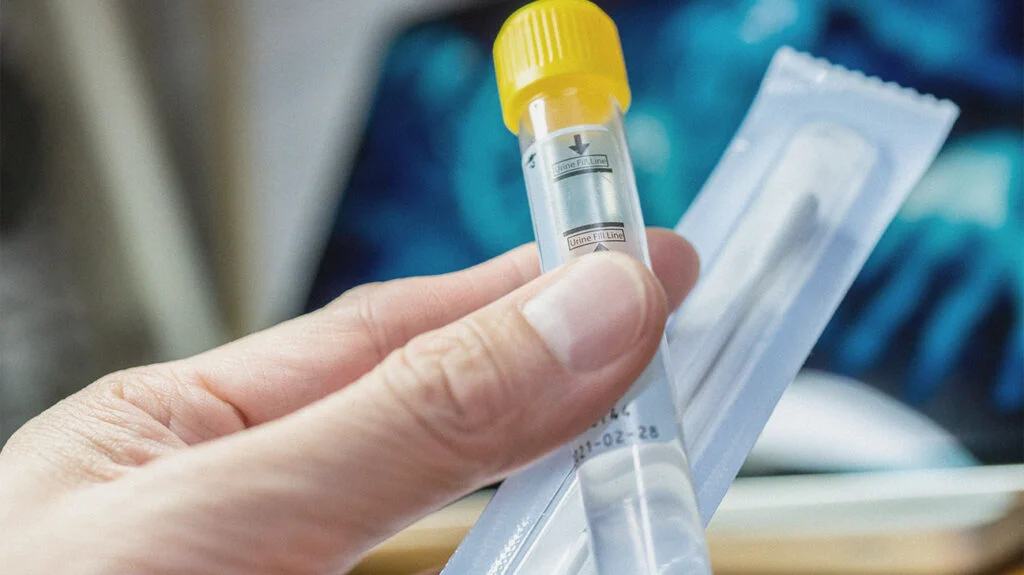
Sexually transmitted diseases (STDs) can affect various parts of the body and often present with a range of symptoms. Understanding these symptoms is essential for early detection and treatment.
What Are Sexually Transmitted Diseases (STDs)?
Sexually transmitted diseases (STDs) are infections that are primarily spread through sexual contact. These infections can be caused by bacteria, viruses, or parasites and can affect the genital area, rectum, throat, and other parts of the body. STDs can range from mild to severe and may sometimes be asymptomatic, meaning they show no symptoms.
STD Symptoms & Types of STD
Each STD has its own set of symptoms and characteristics. Here’s an overview of common STDs and their symptoms:
HIV/AIDS
- Early Symptoms: Fever, swollen lymph nodes, sore throat, rash, and muscle aches.
- Advanced Symptoms: Rapid weight loss, recurring fever, night sweats, extreme tiredness, and persistent cough.
Genital Herpes
- Symptoms: Painful sores or blisters on the genitals, buttocks, or thighs, itching, and discomfort during urination.
- Recurrent Outbreaks: Episodes of sores may recur, often triggered by stress or illness.
Syphilis
- Primary Stage: Painless sore or ulcer (chancre) at the site of infection.
- Secondary Stage: Skin rash, mucous membrane lesions (e.g., in the mouth), and swollen lymph nodes.
- Latent Stage: No visible symptoms but the infection remains in the body.
- Tertiary Stage: Severe complications affecting the heart, brain, and other organs.
Chlamydia
- Symptoms in Women: Abnormal vaginal discharge, burning sensation during urination, and lower abdominal pain.
- Symptoms in Men: Discharge from the penis, pain during urination, and swollen testicles.
Gonorrhea
- Symptoms in Women: Increased vaginal discharge, painful urination, and pelvic pain.
- Symptoms in Men: Yellowish or greenish discharge from the penis, pain during urination, and swollen testicles.
Trichomoniasis
- Symptoms in Women: Frothy, greenish-yellow vaginal discharge with a strong odor, itching, and discomfort during urination.
- Symptoms in Men: Itching or irritation inside the penis, discharge, and pain during urination.
Hepatitis B
- Early Symptoms: Fatigue, abdominal pain, loss of appetite, nausea, and jaundice (yellowing of the skin and eyes).
- Chronic Hepatitis B: May lead to liver damage, liver cancer, or cirrhosis without noticeable symptoms.
When To See A Doctor For STD
It is important to see a doctor if you experience any of the symptoms mentioned or if you have been exposed to someone with an STD. Regular screenings are also recommended if you are sexually active, especially if you have multiple partners or engage in unprotected sex.
STD Causes
STDs are caused by various pathogens, including:
- Bacteria: Such as those causing chlamydia, gonorrhea, and syphilis.
- Viruses: Such as those causing HIV, herpes, and hepatitis B.
- Parasites: Such as those causing trichomoniasis.
These infections are transmitted through vaginal, anal, or oral sex, and some can be spread through direct skin-to-skin contact.
Prevention of Sexually Transmitted Diseases
To reduce the risk of STDs:
- Use Condoms: Consistently and correctly use latex condoms during sexual activity.
- Get Vaccinated: Vaccines are available for certain STDs like hepatitis B and human papillomavirus (HPV).
- Practice Monogamy: Being in a mutually monogamous relationship with a partner who has tested negative for STDs.
- Get Regular Screenings: Regular testing for STDs can help detect infections early and prevent transmission.
- Avoid Sharing Needles: Use only sterile needles if injecting drugs.
Conclusion
Recognizing the symptoms of STDs and understanding the types of infections can help you seek timely medical care and reduce the risk of complications. Regular std test dubai, safe sexual practices, and preventive measures are essential for maintaining sexual health and preventing the spread of STDs. If you suspect you have an STD or are at risk, consult a healthcare professional for evaluation and treatment.






